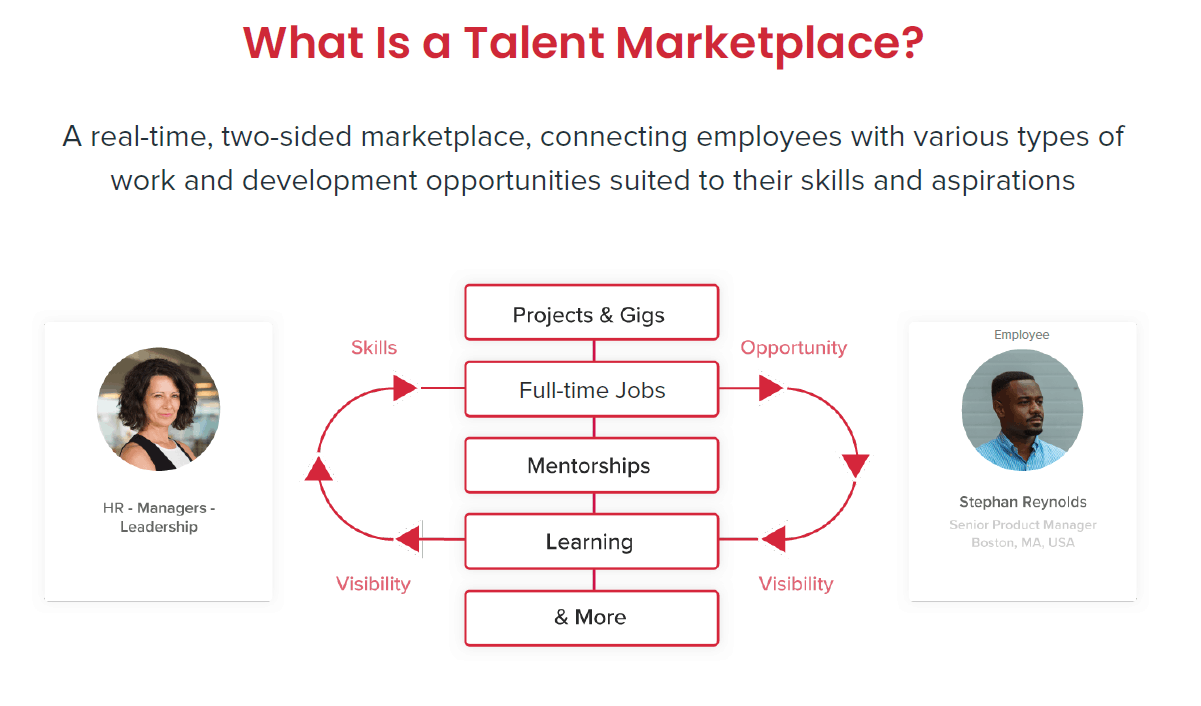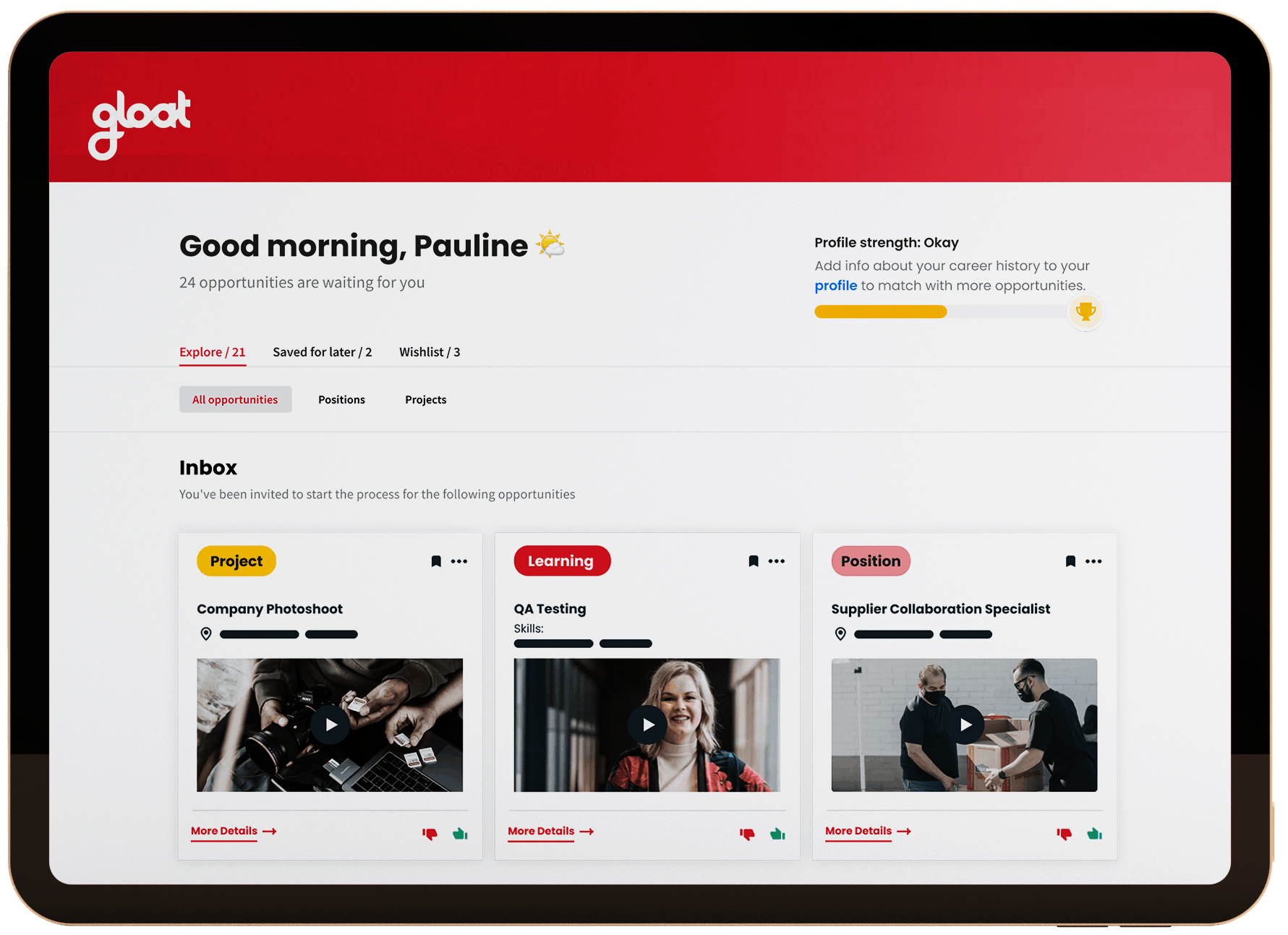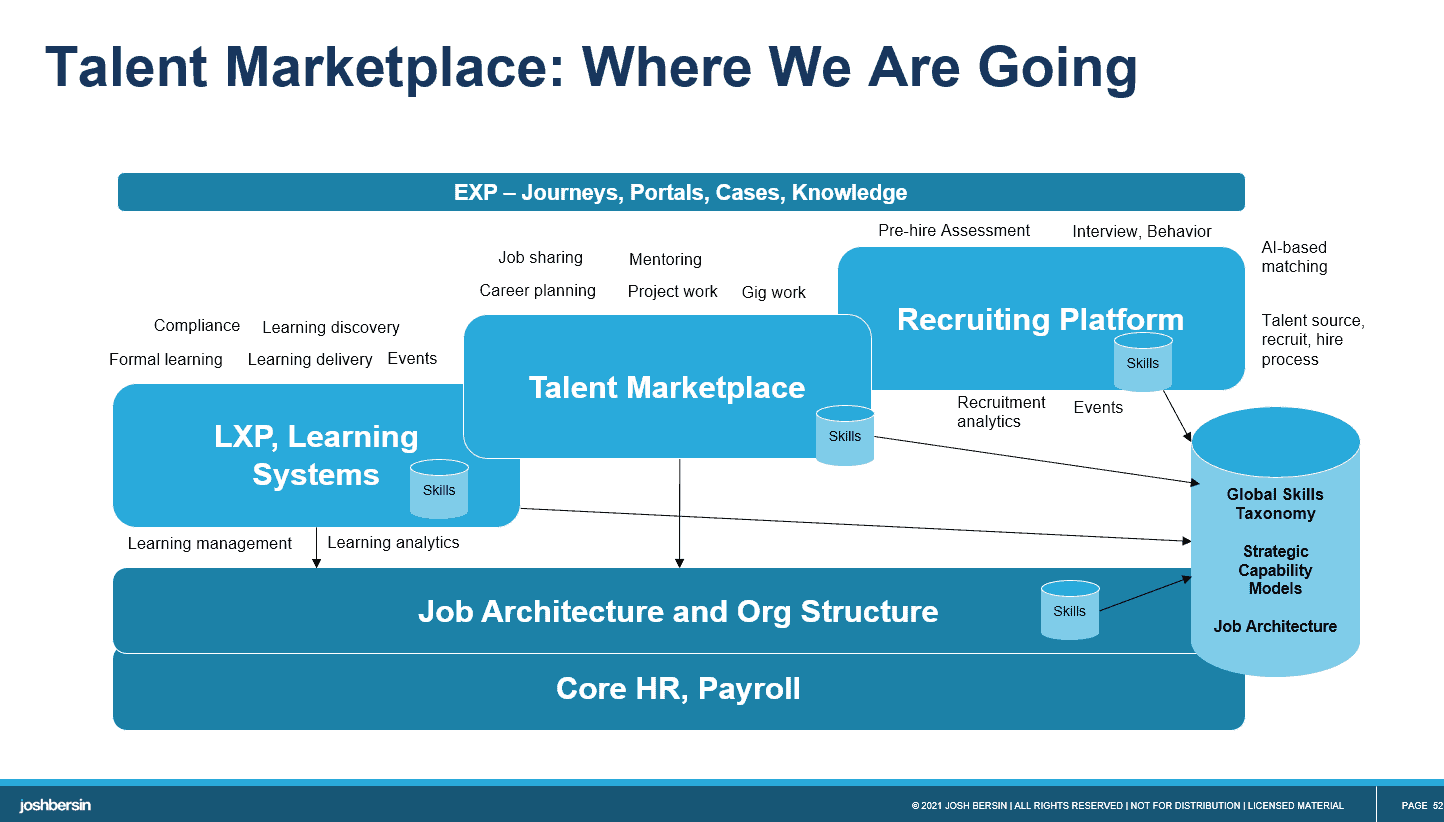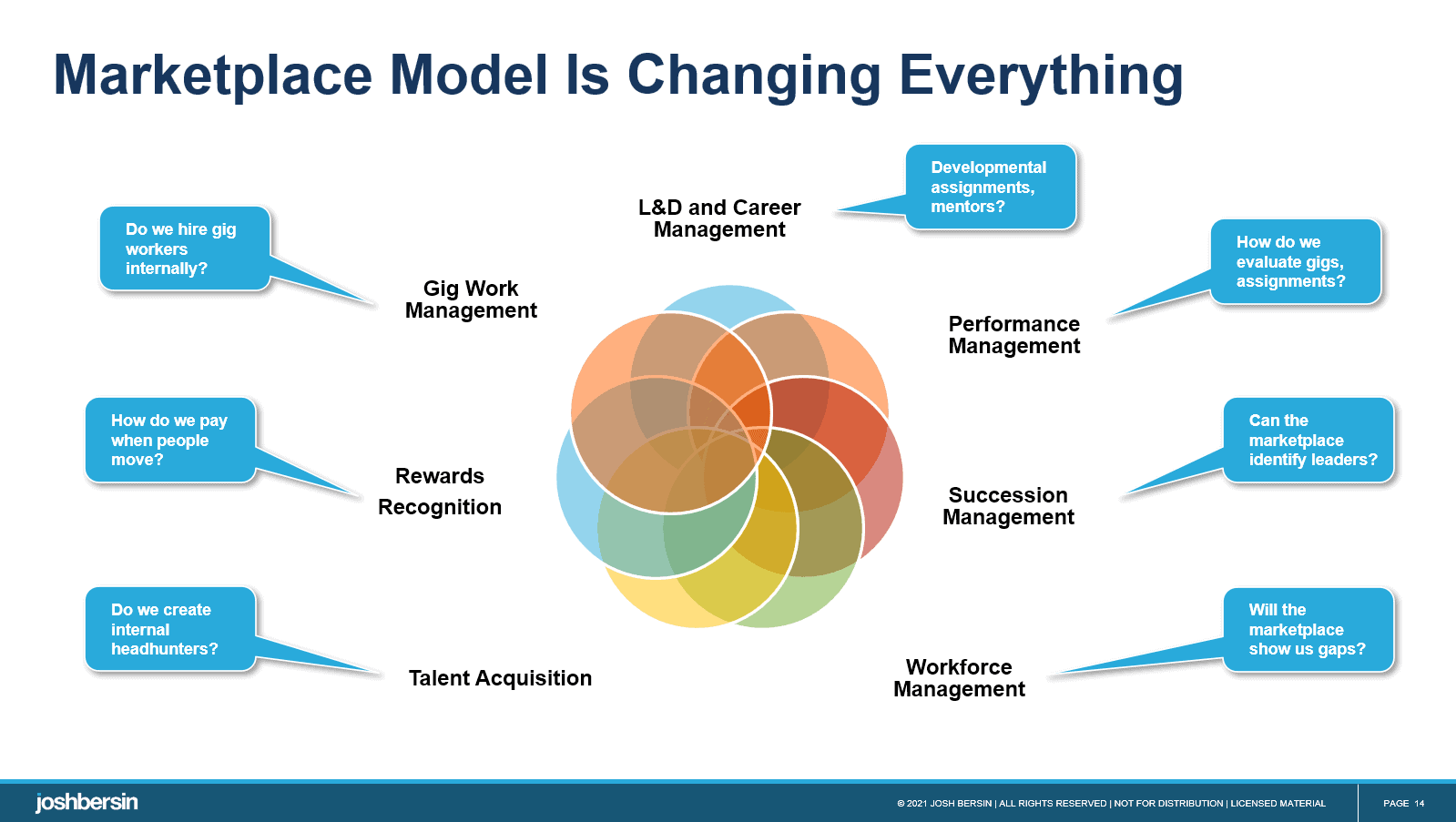Gloat Receives $57M Round, Defining The Talent Marketplace
Of all the changes going on in business, none is quite as disruptive as the shift to a marketplace model. While all companies have CEOs, senior leaders, and many forms of management, employees are more empowered and unleashed than ever. And this means that CEOs and managers can no longer “tell people what to do” – they have to set guidelines, create goals, and enable and empower people to act.
In the broader business world, this means a shift from “directed” to “marketplace-driven” management.
Let me give you a few examples.
AirBnb, a company that owns no facilities and has no real-estate, is now worth $92 Billion while Marriott, a company with thousands of hotels and resorts, is worth $46 Billion. Both companies provide rooms, vacations, and rentals – but one is a marketplace and the other is a directed service.
 |
When the Pandemic occurred, AirBnb immediately saw a drop in demand and its supply chain adapted. People took their houses off the market, properties were redesigned to be clean and safe, and within a few months its demand quickly returned. Marriott, which of course saw a similar trend, had to shut down facilities, train and reorganize its operations, and spend money on cleaning and supplies. The marketplace model was more adaptable, more profitable, and as a whole just “smarter.”
Let me give you a second example. Udemy vs. LinkedIn Learning.
Udemy, a fast-growing online learning company, is a marketplace for authors and experts. Anyone who has the expertise to share can build a course and publish it, and Udemy’s platform makes it easy to find, consume, and analyze. LinkedIn Learning (and SkillSoft, Coursera, and others) is a publisher. They hire experts, create instructional videos, and publish them for students. Every week Udemy publishes hundreds of new, current, up-to-date courses. LinkedIn, SkillSoft, and Coursera take months to build a course.
Udemy’s content business is growing at four times the rate of the other vendors, and its content is immediately curated and improved every day. As with Airbnb, the network itself is intelligent so when a course is rated poorly it just “falls away” from the users, and the best authors and instructors rise to the top. And guess what: authors and Udemy make more money.
The marketplace, if put together well, will almost always outperform a “directed” business. Why wouldn’t we want our talent to work this way?
The Talent Marketplace In Companies
This leads me to Gloat. Gloat, a company that originally started as a job matching engine, has pioneered the adoption of “marketplace dynamics” in companies. Their customers, which include Unilever, Nestle, ABInBev, HSBC, Standard Chartered Bank, MetLife, Mastercard, Schneider Electric, Seagate, and others. And today the company announced an additional $57M in funding.
While this market appears crowded (Eightfold.ai, Workday, Oracle, Fuel50, Hitch, and dozens of other vendors), Gloat is taking the lead. The company now has employees in 14 countries and is laser-focused on the platform, services, and strategy to create a talent marketplace inside a company.
 |
As you know, this is a complicated change. While these systems start as “career management” platforms, they quickly turn into systems that facilitate project work, gig work, and mentoring. And then over time they become places for people to find mentors, create developmental assignments, share jobs, and eventually manage performance. So while Gloat started as a smart, well-designed matching system, the company is evolving into a platform for organizational agility.
 |
As far as the tech, it’s really a new “system of record.” So while Gloat didn’t set out to build an enormous HCM system, it has to adapt and change. Already vendors like Degreed, EdCast, and soon Cornerstone and SAP are getting into this market, so it begs the question of “Is the marketplace a learning platform or one for mobility?”
 |
Ultimately, if you think of the analogy of AirBnB, this is just a whole new way to manage people. In Jean Pelletier’s description of the Talent Marketplace at Schneider, she talks about it as “the people’s system.” Just as AirBnb is “the system for hosts,” the Talent Marketplace is the “system for people and teams.” (It’s not a system owned by HR.)
Let me mention, by the way, that Talent Marketplaces take many forms. Some are built for career growth (Fuel50 focuses here); some are built for gig and project work (Hitch focuses here); some are built for developmental assignments (Degreed and EdCast focus here); and some are built for end-to-end job and talent mobility, which is where Gloat, Eightfold.ai, Avature, PhenomPeople, and iCims focus. So while this feels like a product buy, it’s really a new marketplace of systems and I advise companies to think about their use cases.
I have been a fan of Gloat from the beginning, when I first met the team in Israel. Since their original pivot toward Inner Mobility they have moved fast and taken good care of clients – so their new funding will accelerate growth.
As far as the market, I think this it’s just beginning, so there’s a lot of opportunity ahead. Every company is just starting to understand the implications of the “marketplace model for talent,” and this means there will be pioneers, early adopters, and then late majority and laggards later. Gloat has now become a “safe buy.”
 |
The only thing I can add is that everything in the job market is pushing this way. We have a very tight labor market, a fast-growing global economy, and accelerating disruption and transformation in every single industry. If you can get your people to reskill, redeploy, and change roles as fast as AirBnB responded to the pandemic, your company will be in great shape.
Congrats to the Gloat team on their continued success, this is good news for the entire HR Technology market.


